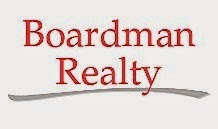
People doing something, anything, for the first time will often never start because they are afraid of taking that first step. Learning to ride a bike. Learning to swim. Learning to Drive. Learning a foreign language. Even setting up an extensive vacation can be a challenge. I had a REALTOR® friend ask me a few months ago how to start a real estate blog. I gave her the basic steps for a quick and easy set up but she wanted to go to a class and the library for books. At last check, she doesn’t have a blog…she was still in the “learning” phase.
Sometimes, first time homebuyers do not know where to start either. Most people’s only experience with buying a big ticket item doesn’t go beyond buying a car (and we all can remember how much “FUN” that was!) Buying a home is a different experience because when you purchase a house you can have a person in your corner working for you…much like that used car salesman was working for his manager in the back that he kept going to for approval on your offer. Only this time, you are not left alone in a cubicle with a stale donut and cold coffee waiting for a counteroffer.
First time homebuyers who want to learn more about the process generally start by scouring the internet for answers. There is a load of information out there…but is it GOOD information? How does it relate to buying a Minnesota home? Will the programs outlined on the website visited work if you want to buy a home in Washington County, Anoka County or is it only for a specific area or state?
Often I am asked by friends and relatives where potential home buyers can take a class to learn more about buying a home. Most people need a class that will fit their schedule and get them out searching for their dream home very quickly.
Well, I will let you in on a little secret. First time homebuyers do not need to sit in a class on someone else’s schedule with a bunch of potential homebuyers to learn to buy a home. There isn’t a class requirement for buying a house. But if you want to learn, call me for a 30 minute quick start consult on buying a Minnesota home!
If you are serious about buying a home and taking advantage of the extremely low interest rates that are available this fall, let me be your guide. As an experienced and professional REALTOR® with hundreds of extremely happy clients, I can educate you quickly on the process of buying your first home and at no cost to you!
Contact me HERE and request your**FREE** HOMEBUYER SUCCESS PACKAGE. As soon as I receive your information, I will call you to set up a time that works for you for no-obligation, low-pressure 30 Minute consultation. You will leave with my Homebuyer Success Packet in hand and have all your questions answered on the home buying process.
Copyright 2010 Teri Eckholm
Sometimes, first time homebuyers do not know where to start either. Most people’s only experience with buying a big ticket item doesn’t go beyond buying a car (and we all can remember how much “FUN” that was!) Buying a home is a different experience because when you purchase a house you can have a person in your corner working for you…much like that used car salesman was working for his manager in the back that he kept going to for approval on your offer. Only this time, you are not left alone in a cubicle with a stale donut and cold coffee waiting for a counteroffer.
First time homebuyers who want to learn more about the process generally start by scouring the internet for answers. There is a load of information out there…but is it GOOD information? How does it relate to buying a Minnesota home? Will the programs outlined on the website visited work if you want to buy a home in Washington County, Anoka County or is it only for a specific area or state?
Often I am asked by friends and relatives where potential home buyers can take a class to learn more about buying a home. Most people need a class that will fit their schedule and get them out searching for their dream home very quickly.
Well, I will let you in on a little secret. First time homebuyers do not need to sit in a class on someone else’s schedule with a bunch of potential homebuyers to learn to buy a home. There isn’t a class requirement for buying a house. But if you want to learn, call me for a 30 minute quick start consult on buying a Minnesota home!
If you are serious about buying a home and taking advantage of the extremely low interest rates that are available this fall, let me be your guide. As an experienced and professional REALTOR® with hundreds of extremely happy clients, I can educate you quickly on the process of buying your first home and at no cost to you!
Contact me HERE and request your**FREE** HOMEBUYER SUCCESS PACKAGE. As soon as I receive your information, I will call you to set up a time that works for you for no-obligation, low-pressure 30 Minute consultation. You will leave with my Homebuyer Success Packet in hand and have all your questions answered on the home buying process.
Copyright 2010 Teri Eckholm






.JPG)





